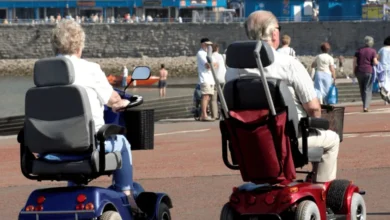
According to the World Health Organization (WHO), around one in six people aged 60 years or older experiences some form of abuse each year.
Rates of abuse are highest in community-based institutions, including nursing homes and long-term care facilities. In fact, the WHO reports that two in three staff members admit to committing abuse in the past year.
If someone you love is involved in a nursing home abuse lawsuit, it’s important to know which steps to take, and how long the process could last. Today, we’re taking a look at the general timeline so you can prepare.
Performing the Initial Case Assessment
When someone first notices nursing home injuries on an elderly person, they may choose to open up a legal claim against the institution. Before doing so, it’s best to hire a personal injury attorney who will know the exact steps to follow.
When deciding on a lawyer, choose a local team you can easily contact as the case progresses. For instance, residents of the Palmetto State should hire a Myrtle Beach nursing home abuse attorney.
Most lawyers require an initial case assessment to discuss critical details about each case before agreeing to take it on. During this meeting, they will learn as much as possible about the alleged abuse, including how long it’s been occurring and the extent of the injuries. This conversation typically only lasts about an hour, though it can take a few weeks to coordinate a time.
Meeting With the Client
If the lawyers you contacted agree to take on your case, then they will need to meet with you to gather more details as the claim develops. While this conversation can take place over the phone, it’s usually held in person.
During this meeting, you can have a more in-depth interview with your legal team. They’ll go over all of the local and federal laws that apply to your case, as well as the processes you can expect as you move forward. They may also require you to sign a legal agreement to retain their counsel.
If you have any questions about your next steps, you can ask them at this time. While each case is unique, most in-person interviews take place within a month after you make that initial contact.
Investigating the Abuse and Developing Your Claim
Once initial meetings are complete, your legal team can begin researching your claim and investigating the allegations you’re bringing against the nursing home facility. This process can take a while, but if you have complete and thorough evidence that someone behaved improperly, then you can help build your nursing home abuse settlement.
Let’s take a look at some of the key steps that will occur along the timeline.
Gathering Records
Most attorneys will begin by gathering critical records that pertain to your case. These can include, but are not limited to:
- Medical records
- Facility records
- Personal records, photographs, and notes
- Billing records
All of these records can play an important role in your lawsuit. Once your lawyers review them, they will begin to conduct a more thorough investigation into your claim. For instance, they may review these notes to determine if any type of medical negligence or medical malpractice was conducted at the facility in question.
Consulting With a Medical Expert
While your lawyers are gathering pertinent records in the background, they may also need to consult with someone in the medical community, such as a doctor or nurse consultant, about specific case-related details. This expert will normally take on a consulting role in your case, lending industry-specific knowledge to help uncover instances of wrongdoing.
For instance, they might review the records to determine what happened, and who is responsible for the injuries that occurred. The legal term for this process is proving liability. In a typical nursing home abuse claim, liability encompasses the following:
- Determining whether or not a medical error occurred
- Determining who is responsible for the error
- Determining what injuries resulted from the error
For those closest to the victim, the answer may be glaringly obvious. However, this isn’t a time to point fingers. The medical expert will take an unbiased view of the situation and seek to assign facts, not opinions, to the injuries.
The liability process can take several months to complete.
Filing the Notice of Claim
If the medical expert does find that someone is liable for the injuries, you can choose to move ahead. If your legal team also agrees to take the next step forward, they will send a document called a Notice of Claim (NOC) to all defendants who could possibly be involved in the case.
In this letter, the defendants will read two important pieces of information. These include:
- The nature of the injury in question
- Your expressed intent to sue
In most states, a lawyer is required to submit a NOC to the defendants at least 60 days before filing the lawsuit. This is a legal requirement, and skipping this step could render your claim incomplete.
Completing the Nursing Home Abuse Lawsuit
Once the NOC is submitted and the lawyer files the lawsuit with the court, the defendant will receive another notice. This is simply a citation that tells them about the lawsuit and requires them to respond.
Then, there are several other steps that must occur, including:
- Serving the Expert Report (Must take place within 120 days of the defendant’s answer to the lawsuit)
- Completing the Discovery Phase
- Entering into mediation or settlement negotiations
- Taking the case to trial
From the beginning to the end, a nursing home abuse lawsuit can take anywhere from 18 months to two years to complete. It’s important to be patient during this time and assist your legal team as required.
Keeping Your Loved Ones Safe and Secure
From elderly parents to older siblings, you may have several loved ones who currently live in a nursing home. If you notice any signs of abuse, it’s important to take action.
By opening a nursing home abuse lawsuit, you can not only take strides to keep your own relative safe. You could also prevent the same type of harm from happening to other residents.
Looking for more tips on how to stay well? Be sure to check out the other articles in our Health section!
Also read:






